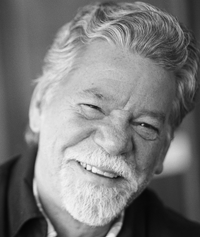Like viruses that contaminate the truth, false accounts appear on social networks. These are fake accounts operated by unscrupulous people who, shielded by anonymity, are responsible for spreading false news or discrediting institutions or individuals.
Until now it was known with certainty of its existence in the world of show business or politics, areas where it is frequently used. We knew about hackers’ interventions in the electoral processes trying to confuse voters, to distort information and misinform, trying to alter and influence citizen opinion for some political purpose. Computer applications have often been accused of being specialists in these activities.
But little did we know that there were specialists in spreading false information about the true progress of deforestation, minimizing it. And interested in discrediting environmental leaders and indigenous representatives who defend their territories from the harassment of cattle ranchers or soybean producers, or from illegal loggers in reserve zones, and who disavow NGOs that legitimately defend the Amazonian forests and the communities that live there from the incessant harassment of the destroyers of the environment.
For this reason, the news item that appeared in the Madrid newspaper El País on April 9, on page 27 (1), which refers to the existence of several fake profiles in charge of managing nine Facebook pages and 39 Instagram accounts, in which they were responsible for minimizing the seriousness of the damage caused by the increasing deforestation in the Brazilian Amazon. These accounts, responding to the complaint of the victims of his attacks, were closed by Facebook. The Brazilian newspaper Estadao denounced that these accounts were managed by two officers of the Brazilian Army, who praised the policy of open intervention and Amazon colonization of the former military officer and president Jair Bolsonaro, although it has not been possible to prove the existence of a close link between the forgers and the presidential house.
These fake networks were responsible for intervening in the Brazilian political debate in favor of the relaxation of the laws protecting the Amazon, trying to influence a citizenry, especially those with fewer resources, very linked to the use of social networks, in a country where the Amazon environmental issue is a topic of extreme political sensitivity, especially during the upcoming election period.

Dr. Rafael Cartay is a Venezuelan economist, historian, and writer best known for his extensive work in gastronomy, and has received the National Nutrition Award, Gourmand World Cookbook Award, Best Kitchen Dictionary, and The Great Gold Fork. He began his research on the Amazon in 2014 and lived in Iquitos during 2015, where he wrote The Peruvian Amazon Table (2016), the Dictionary of Food and Cuisine of the Amazon Basin (2020), and the online portal delAmazonas.com, of which he is co-founder and main writer. Books by Rafael Cartay can be found on Amazon.com
Source
- Gortázar, N. G. (2022, April 8). Facebook unmasks Brazilian military who spread false news about the Amazon. El País. https://elpais.com/clima-y-medio-ambiente/2022-04-08/facebook-desenmascara-a-militares-brasilenos-que-divulgaban-noticias-falsas-sobre-la-amazonia.html
This post is also available in:
![]() Español (Spanish)
Español (Spanish)
